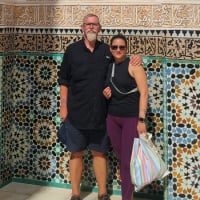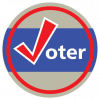Trust-Based Philanthropy


The community foundation I work for is starting research regarding the trust based philanthropy model. I am curious if there are other community foundations out there already engaging in this practice. Can you provide a couple of pros and cons regarding your experience? What has been the biggest challenge?
Comments
-
This sounds intriguing.
One of the books I had to read in the course work to obtain my Chartered Advisor in Philanthropy designation was Uncharitable: How Restraints on Nonprofits Undermine Their Potential by Dan Pallotta.
It addresses some of the issues raised in the the trust based philanthropy model. Here is a brief description.
Uncharitable goes where no other book on the nonprofit sector has dared to tread. Where other texts suggest ways to optimize performance inside the existing paradigm, Uncharitable suggests that the paradigm itself is the problem and calls into question our fundamental canons about charity.
It would be worth your while to read this as you do your research.
Best,
Kent
4 -
@KentWeimer Thank you for the suggestion! I will definitely look into this book, it sounds very interesting.
3 -
@jessicascites our Staff and Board has been really digging into TBP over the last year. The resources on the https://trustbasedphilanthropy.org/ page are great. I would say the biggest challenge we have faced is our relationship to it -- many of the foundations using TBP are private (and, for example, able to identify a time horizon) and as a community foundation, TBP is more itself a disciple and so we are working to identify our relationship with it. In addition, our Board wants to ensure we always maintain donor intent and curious about how this practice would evolve our Grants Committee.
We feel our Covid Relief fund and efforts have been an amazing example of the impact TBP can have. Also, we have really been looking at how TBP values align with ours -- again, this has been really helpful.
Here are two more resources if you have not yet seen them.
5 -
I am in Canada and our Community Foundations of Canada did a webinar recently on this. We are in the process of starting to do this, although with COVID, it already started as we had to pivot so much during this last year. You can watch the webinar here - https://youtu.be/ukKULgY6qh4 It has some great people who share their experiences, including one CF who is over 100 years old. Our CF is small and we are taking it slow, starting with a few of our regular grantees that we have already created that "trust" with. I think it is a great way to move forward and start trusting our grantees as they are doing some pretty great work out in our communities! Good Luck!
5 -
We started this a number of years ago and later learned that it had a name. It started with the realization that our grant applications were too burdensome. Over the years -- with good intentions -- additional questions were added in order to make a "responsible funding decision." Problem was, no questions were ever taken off. We asked, "What minimal information do we need to make a solid decision." That was our starting point down this road. Have since learned of the actual concept of TBP, and are still adapting, learning, growing. Our area is small to moderate size, so knowing our grantees fairly well, TBP is probably easier for us than for more urban areas perhaps. To date:
- We have gathered small "focus group" lunches where we ask nonprofit grantees to tell us what we do well, where we could improve
- Have shortened all of our grant and scholarship applications so it takes much less of their valuable time to fill out an application that may or may not be granted
- In months that have a 5th Friday, host a breakfast meeting of nonprofit Executive Directors (only -- no proxies); guest speaker, social time, agency announcements
- During pandemic, converted project grants to operating funds;
- For new grants during pandemic, asked that if they had already filled out an application elsewhere for the same request, just to send us a pdf of that application, not to bother filling out ours; will probably continue this going forward
- We rarely make site visits, do not require progress reports, only a brief final report; and it's okay if the grant project didn't succeed as planned, we just ask "What did your learn in the process? What can we do differently next time to help it succeed?"
- I periodically meet np ED's for coffee just to visit. Usually end up finding out what issues they are facing. They see the CF more as a peer -- even while there is that relationship serving as a funder.
- To be clear, we are not an expert at TBP, but we are learning what we think is a better relationship than having np's approach our throne on bended knee.
7 -
Thank you, Rand!! I really appreciate you taking the time to share that information with us. I am curious what system you use for your grant application workflow?
2 -
@jessicascites We use Foundant's GLM for our grant processes and currently still use SmarterSelect for scholarships.
0 -
Lol - that was a silly question here on the Foundant discussion board. :) Thank you, Rand.
0 -
Not a silly question at all. For example, we worked with C-Suite for a couple of years using another grant program before we moved over to their GLM application, and still using another program for scholarships (although we will probably be moving that to Foundant's module within the next year or so).
2 -
@RandMorgan So how do you move applications through the workflow for the organizations that have sent you a pdf of a request from another funder? Do you fill out the application in GLM for them with the information they have provided?
1 -
@jessicascites Great question, Jessica. I asked our Program Officer, Lauren Weber. Her short answer was that it was a somewhat complicated workaround. She suggested giving her a call, and she would be happy to explain what she did. (If it's okay to post phone numbers here, you can reach her at 970.304.9970).
1 -
Thank you!! I will give her a call later this week.
0 -
Thanks for everyone's participation in this conversation! Regarding trust-based philanthropy, folks may be interested in next week's Coffee talk, Grants Coffee Talk: Values-Based Grantmaking – Aligning Organizational Values with Grantmaking Practices. It's not exactly the same, but I imagine there is overlap.
3 -
Here are a few things that we have done to work on our relationships with our non-profit partners. It is something that we continue to work on. Even small changes make a difference.
1) Continue make changes to our application so that it is less complicated.
2) Shorten our impact reports for year end reporting. This is something we continue to work on.
3) Host funding workshops at the start of our grant cycle. We walk the non-profits through the applications. We point out any major changes, and allow for questions. In previous years, when we hosted in person, it was also a chance for the non-profits to network. This has been a major success and we have received a lot of positive feedback.
5 -
@RandMorgan this comment is almost two years old, but writing to see if you're still around and if Lauren is still accepting calls :)
2 -
Yes, still here, and Lauren would be happy to speak with you.
2 -
Amazing, thank you @RandMorgan ! I'll try to connect with her tomorrow.
3












